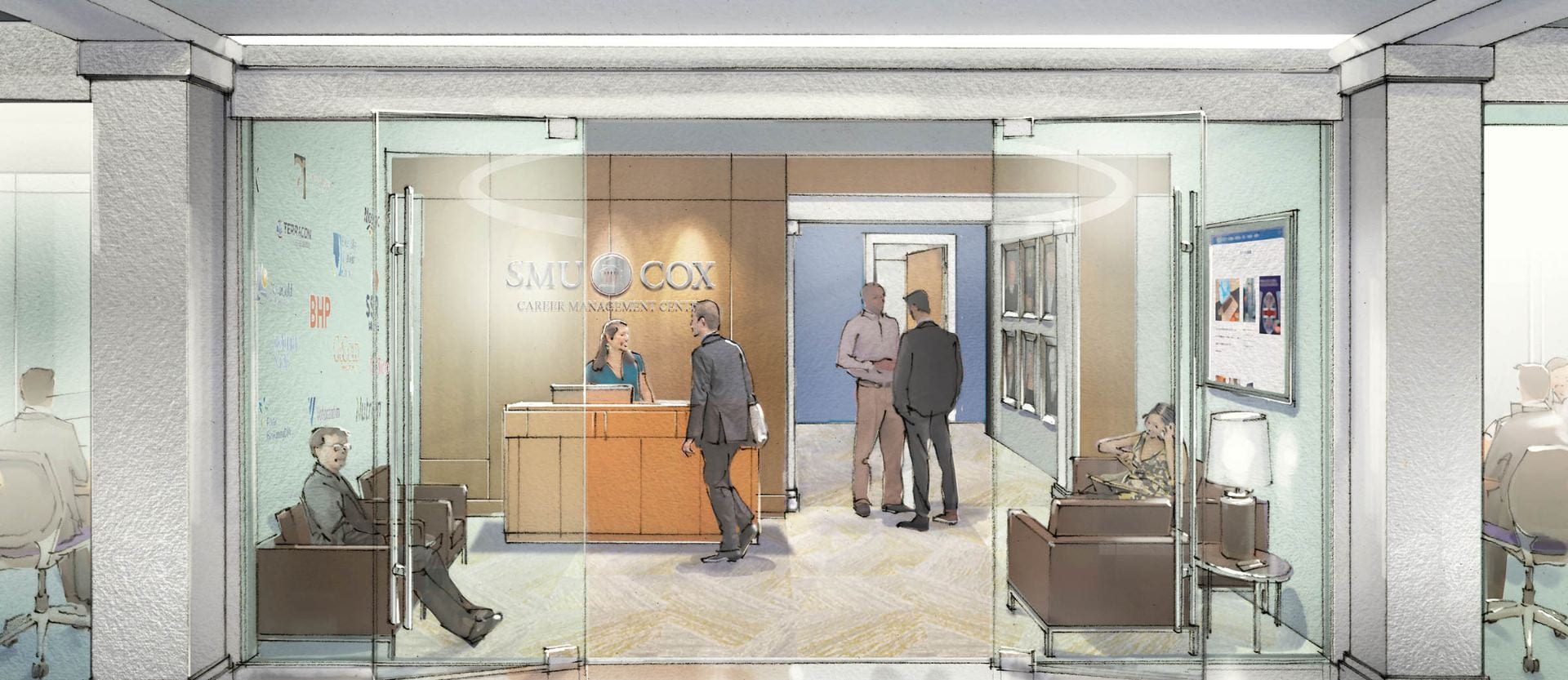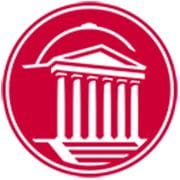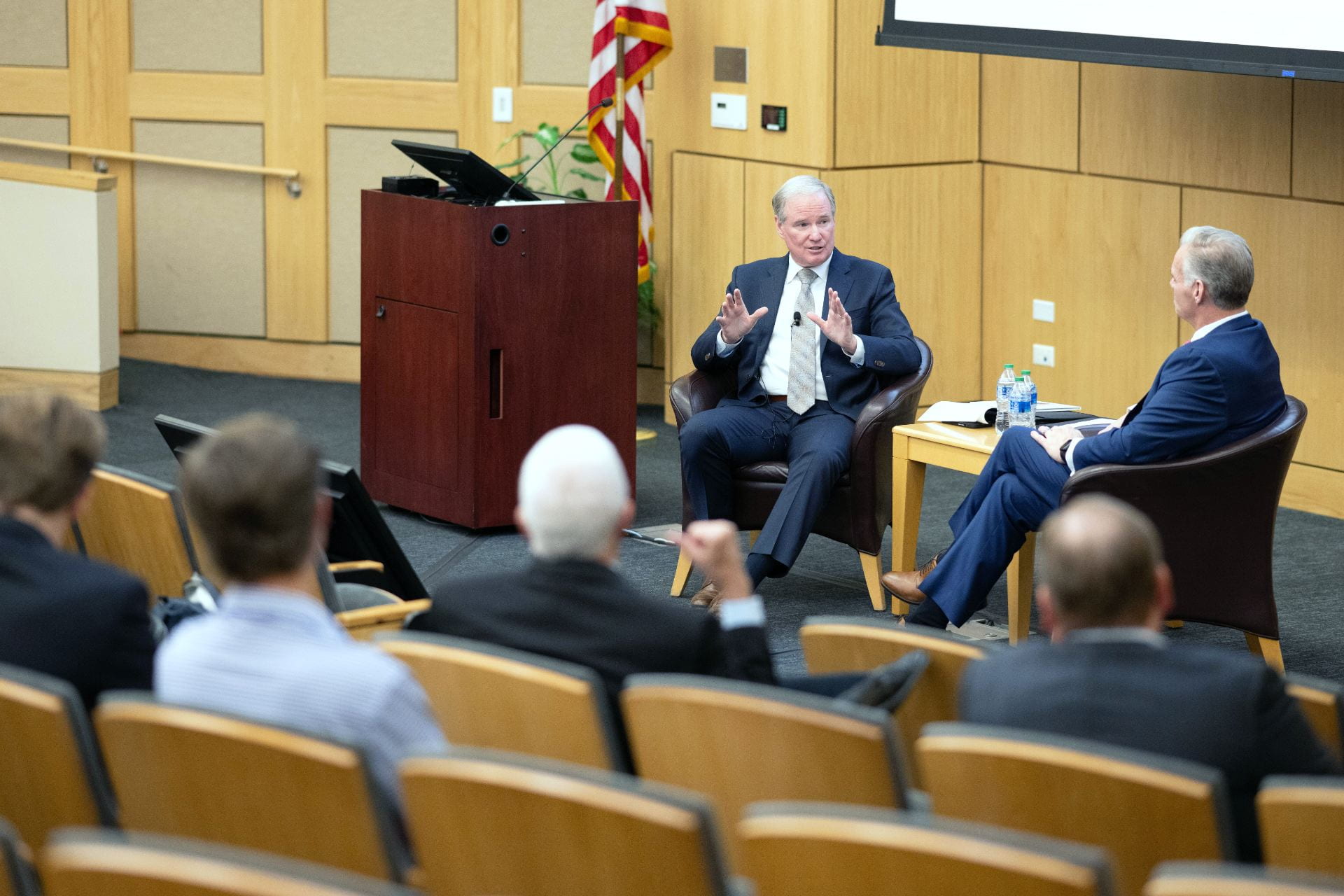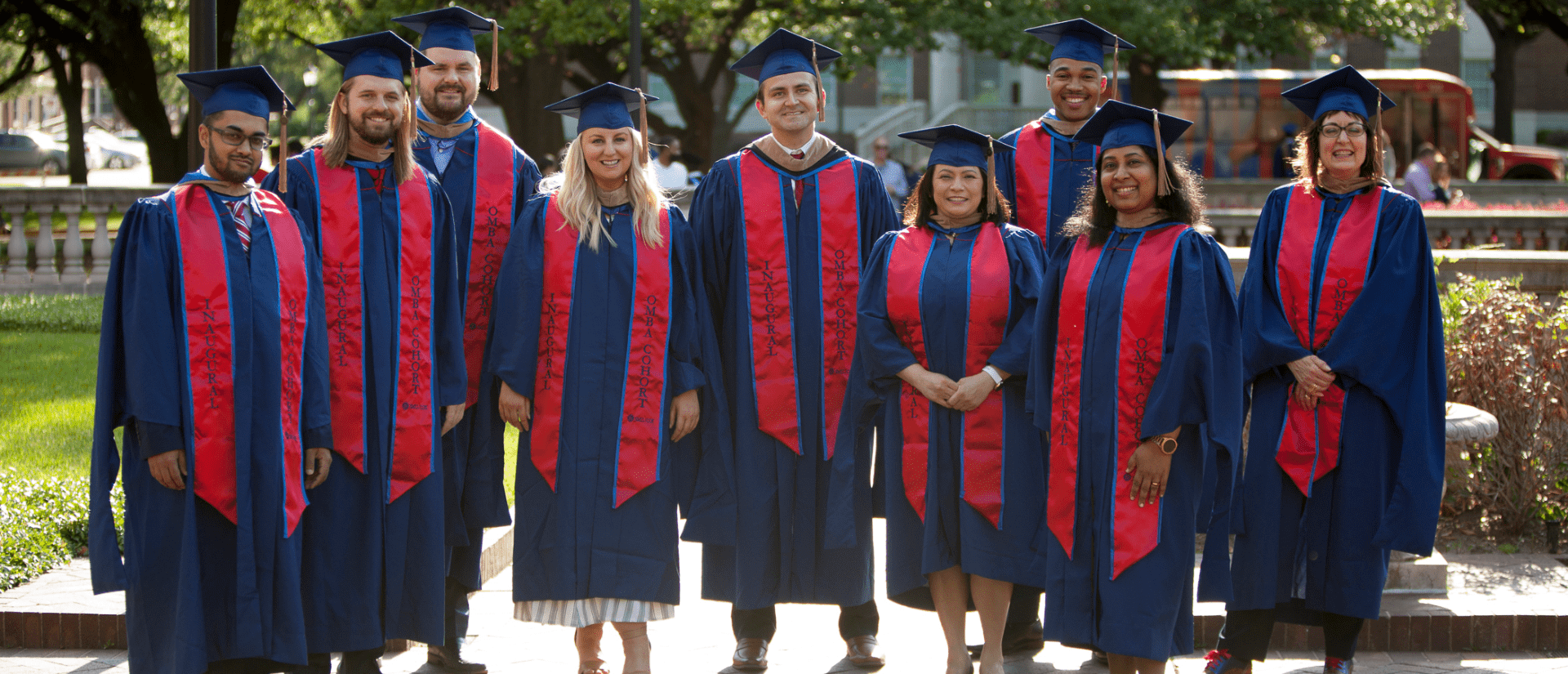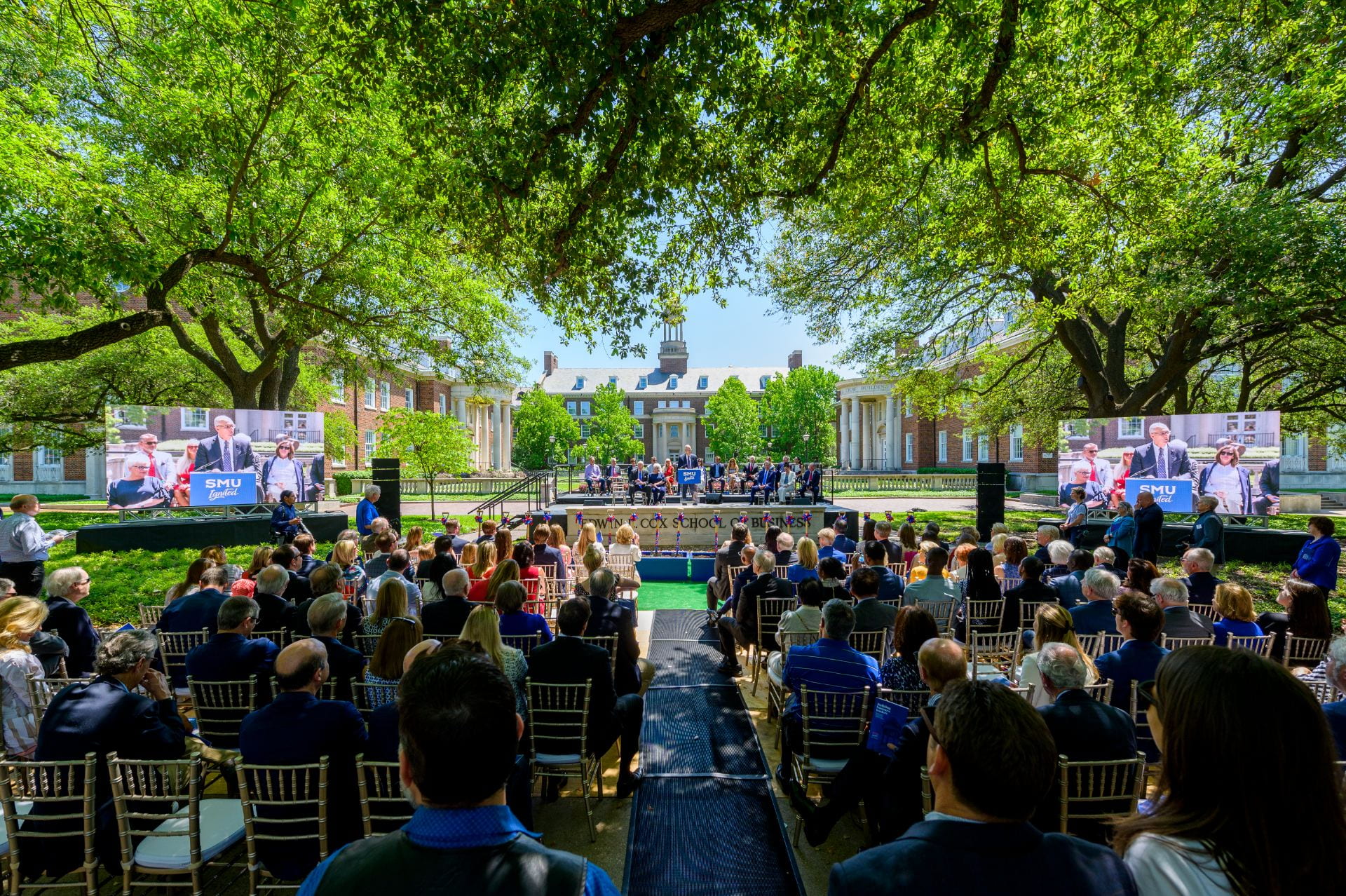Jason Rife does not much like to use the word placement, as in “career placement.”
“It creates the idea of a machine,” says Rife, senior assistant dean of the Career Management Center and graduate admissions at SMU Cox School of Business. “That we have a slate of jobs over here, we have a slate of students over here, and we’re the sorting mechanism slotting them in the right position. That’s not the right way to do this job.” The right way, which differentiates SMU Cox from many of the country’s other top business schools, is a high-touch, personalized approach suited to each student’s particular background, strengths and career goals.
When the cutting-edge, multifunctional SMU Cox facility opens on campus, housing various departments and centers, the new Career Management Center’s offices will reflect its hand-tailored approach. The upgraded space is being completely reimagined and improved with a welcoming design that supports one-on-one coaching and personal interaction, creating a smooth experience for BBA and graduate students as well as recruiters, helping all make good first impressions. The center’s prominent location within the facility — nearly doubled in size from its current space in the Fincher Building, it will occupy an extremely visible part of the building’s central commons area — is itself indicative of SMU Cox’s integration of career services into every stage of the student experience, from the undergraduate level up to executive MBAs.

Supporting Both Virtual and In-Person
The 6,600-square-foot new center will boast more interview and study rooms — each equipped with improved technology, including state-of-the-art screensharing and teleconferencing capabilities. These advancements are particularly important since the COVID-19 pandemic has forced much of the recruiting process online for the past year. Even after vaccines help tame the coronavirus, school officials anticipate that companies will continue to follow a hybrid virtual and in-person model for hiring new workers. Still, Rife says corporate recruiters are eager to return to campuses for face-to-face meetings, and most companies that have gone virtual for early stages of recruitment still expect to meet with leading candidates in person before making a hire. Plus, SMU has a beautiful campus and a culture, cherished by students, of on-campus community. The pandemic won’t change that.
Regardless, Career Management Center coaches need to help students prepare with both virtual and in-person mock interviews and hands-on practice. “There is no substitute for face-to-face training and being in the room with somebody, feeling that pressure,” Rife says. “That’s what a coach can help simulate: that interpersonal connection.” Most candidates competing for jobs with top employers may have similar technical skills — but no two candidates have the same story, Rife says. Showing students how to tell their story, either as a condensed “elevator pitch” or at length, can be what helps them stand out to recruiters.
To that end, students should work often with their career coaches, and the new Career Management Center facility is intended to be an inviting place. Its proximity to the new food-services area is certain to be a draw. Additional study areas will be located near the center, and interview rooms that are not in use can themselves be turned into study rooms, as part of an effort to maximize space and create opportunities for students to interact more frequently with career services, says Michael Molina, SMU associate vice president of facilities planning and management and chief architect.
“Our intent is to provide spaces where people can feel a sense of privacy while also feeling connected to the heartbeat of Cox,” Molina says. “A wall of decoratively frosted glass will separate a line of interview rooms from the main commons. Inside those rooms will be the hustle and bustle of students interacting with recruiters either face-to-face or via videoconference. The backbone of the CMC will be immediately on the other side of those rooms with all of the advisers’ and directors’ offices.”
Welcoming Students and Recruiters
Students entering into the “modern and stately” new career center will have several options. “They can either meet with their advisor, be escorted to their respective interview room or go to the locker and changing area that has been created so that they can be fully prepared to make the best first impression [on recruiters],” Molina says. “There will be a waiting area, if needed, that will prominently display a rotating list of companies that the CMC selects to exhibit. If the student is early, there will be ample space directly outside the CMC in the student commons and coffee options if a snack is appropriate.”
“We want to be able to roll out the red-and-blue carpet here at Cox and give them an experience that is as good as, if not better than, any other top business school in the country.”
— Jason Rife
Greeters will be on hand to meet both students and recruiters, who will have access to a large conference room and kitchen, as well as the interview rooms while they’re at the center. “We need to make sure that our employers feel like this is a world-class experience when they come on campus to recruit,” Rife says. “That means the interview rooms are modernized and comfortable, that there are spaces for them to be able to take a break and log in and check email and conduct a virtual meeting or call. There is a place for them to have lunch. We want to be able to roll out the red-and-blue carpet here at Cox and give them an experience that is as good as, if not better than, any other top business school in the country.”
The new facility comes equipped with amenities that make it easy for recruiters to recruit. The Career Management Center has relationships with some of the country’s leading employers, including PepsiCo, Goldman Sachs, JP Morgan, KPMG and Deloitte. Nurturing those corporate partnerships and making recruiters comfortable is a key part of the Career Management Center’s mission. “Our students are amazing, but our space needs to be equally amazing to continue to attract those employers,” Rife says.
And, of course, the new facility will be a boon to the center’s team, which has grown to meet the needs of a growing student body. The extra space and individual rooms will provide a measure of added privacy, a necessity for coaches doing mock interviews and for recruiters doing real interviews. Yet the design of the new center simultaneously allows for the office suite to be located much closer to the interview rooms than current limitations allow, making it easier for staffers and coaches to help students and recruiters as needed.

Setting Students Up For Career Success
Students will come to the new Career Management Center as a place where preparation meets opportunity. Students expect a return on their investment, and the Career Management Center helps their education pay off. “We can’t just provide curriculum,” says Shane Goodwin, associate dean for Cox graduate programs and executive education. “Yes, students are coming here to get knowledge and content, and we’re certainly able to do that through our pedagogy. But they’re also looking to get a better career outcome.”
This emphasis on career services goes hand-in-hand with Cox’s goal of making sure students are not just job-prepared but future-ready. The future is competitive. Employers expect candidates who are not just technically competent but who also have what Goodwin calls “metaskills,” the kind of intellectual curiosity and tenacity that can only be learned through experience. From Day 1, the Career Management Center will be a part of students’ education. “Career is fundamentally important,” Goodwin says. “We know how critical getting this right really is.”

